24 Healthy Foods for Weight Loss
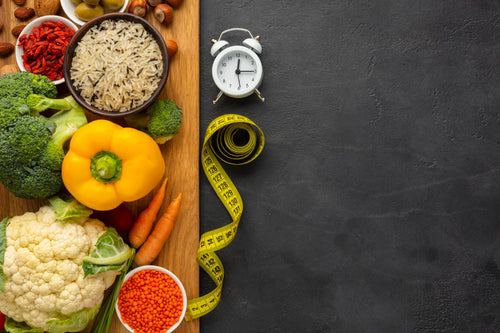
The Role Food Plays in Weight Loss
Food plays a foundational role in weight loss—it’s not just about eating less, but eating right. The quality, quantity, and timing of your meals directly influence your metabolism, energy levels, and fat storage. Whole, nutrient-rich foods help keep you full longer and reduce cravings, making it easier to manage calorie intake. On the flip side, highly processed foods can trigger overeating and blood sugar spikes. Ultimately, a balanced diet supports sustainable weight loss while keeping your body nourished and energized.
Here is a list of food that supports your Weight Loss Journey
1. Whole grains
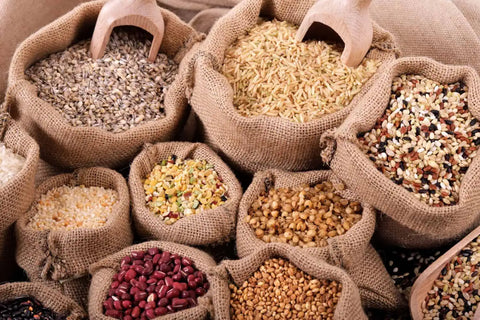
Whole grains are an essential part of every meal, and when you are trying to find healthy food for weight loss, whole grains come on top of that list. Whole grains are great sources of carbohydrates, protein, several micronutrients, and a boatload of fiber. Some examples are quinoa, oats, brown rice, whole wheat, ragi (finger millet), etc.
2. Soup

Soups are also a great food item to consume when trying to lose weight. As long as the soup is broth-based, it will nourish your body and give you energy, whilst making you feel full in the moment. The action of drinking soup itself will psychologically make you eat slower and help with portion control.
3. Lean Meats

Lean meats like chicken, turkey, few cuts of lean beef are great sources of several essential nutrients, protein, and good fat. Consuming these meats will make you feel full for longer, and are very beneficial for you. How you prepare your lean meat is also equally important. Use methods like broiling, roasting, grilling, and baking, where there is minimal use of external fat.
4. Eggs
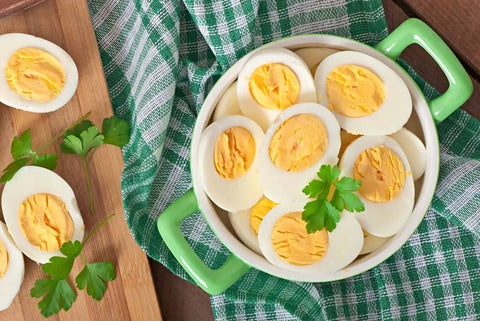
Eggs are low in calories and high in dietary nutrients, which makes them the ideal healthy breakfast food for weight loss. High in protein, good fat, and several micronutrients, eggs can be eaten any time of the day, such as breakfast, lunch, or dinner. All that matters is the preparation. Whether you are poaching them, boiling them, eating them sunny-side up, or part of a vegetable bake or on top of a bowl full of salad, eggs are the ideal weight loss buddy due to their versatility as a food item. Some research even indicates that eggs may help with weight loss over a gradual period.
5. Pumpkin
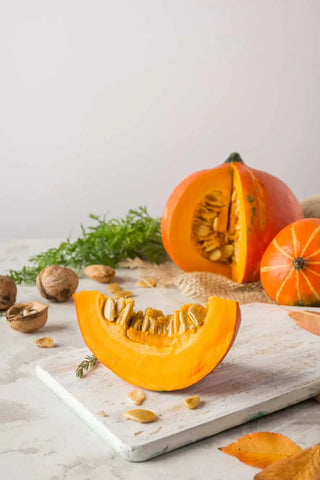
Pumpkin is a fiber-rich, antioxidant-rich choice that's naturally low in calories. One cup of pureed pumpkin has only 80 calories and is loaded with vitamins and minerals. Pumpkin seeds are also a great option because they are healthy snack foods for weight loss, with 7 grams of protein per snack serving! You can consume pumpkin in soups, baked dishes, as an additive to cream-based sauces, in smoothies, etc.
6. Tempeh
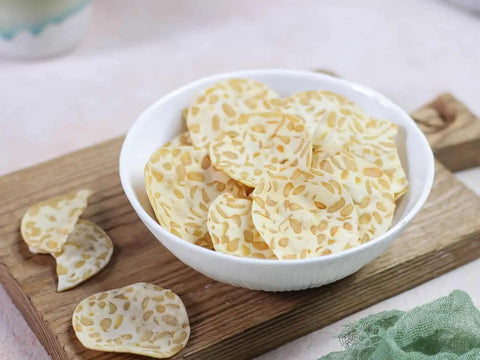
Tempeh is an excellent protein substitute for meat if you are looking for vegetarian protein options. You can try using tempeh in stir-fries, sandwiches, bowls, or wraps, making it an ideal healthy lunch food for weight loss, as the soybean-based protein will help you feel full for longer durations of time, and is an ideal pick-me-up for that mid-morning hunger.
7. Dark Chocolate
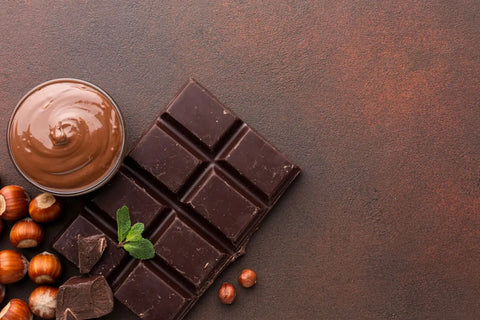
Who said weight loss wasn't fun? Dark chocolate is the guilt-free cousin of milk chocolate, and you can eat it regularly when you are trying to lose weight! Dark chocolate has several health benefits and it has been proved that it positively impacts your levels of satiety. But portion control is everything, as even dark chocolate should be consumed in moderation.
8. Avocados
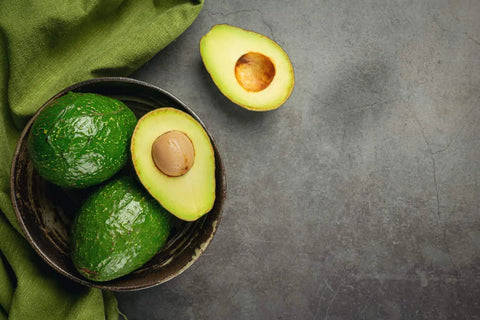
Good fat is always beneficial for you. And when that good fat comes loaded with fiber, vitamin E, lutein, and monounsaturated fatty acids, you say yes! In a 12-week randomized parallel controlled study, daily Hass avocado consumption, in addition to a calorie-controlled diet, supported weight loss and had many other benefits. Additionally, some research even suggests that an avocado a day may help redistribute belly fat in women.
9. Apples
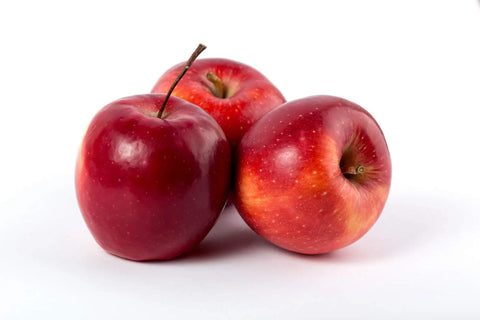
When consuming fruit, always opt to eat raw fruit rather than juices or purees. This is because raw fruits like apples pack a lot of fiber in their skin and that may be lost during the juicing process. Additionally, biting and chewing into a fruit sends signals that you have eaten something substantial.
10. Fish & Shellfish
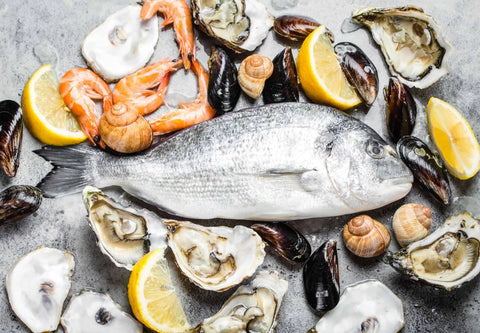
Fish (salmon, tuna, sardines, and mackerel) are rich in omega-3 fatty acids and protein. Research indicates that omega-3 fatty acids may help people with weight classified as overweight or obesity feel fuller. These fishes are also high in several micronutrients which are beneficial for the body’s daily needs. The American Heart Association also recommends that people should eat fatty fish at least two times per week. Plus, fish like salmon are low in calories and high in protein, and help you feel full for longer. Try cooking your fish in the oven or grilling it to ensure minimal use of external fat. Eating shellfish like shrimp appears to decrease appetite by stimulating the production of cholecystokinin, or CCK, a hormone that signals to your stomach that you’re satisfied. Plus, shrimp and other shellfish contain zinc and selenium, two important minerals for immune health and increased energy.
11. Beans and legumes
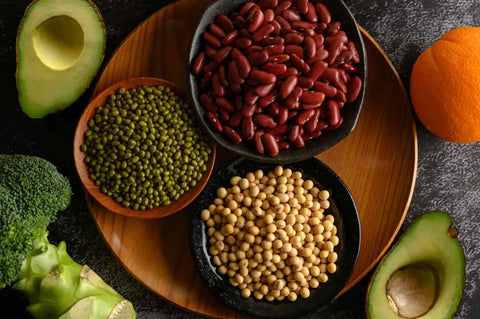
Legume is a general term used to describe the seeds of plants that are in pods. They include high-protein black beans, chickpeas, and kidney beans. Additionally, beans are an excellent source of fiber and protein, which helps you feel fuller for longer. Beans possess a versatility that is not found in a lot of other foods. You can have them in stews, salads, refried, vegetable preparations, curries, baked dishes, etc.
12. Lentils
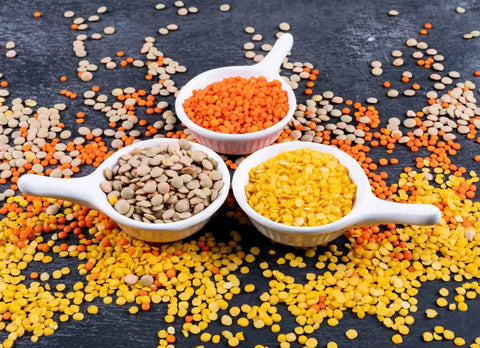
Lentils are a type of legume and are packed with iron, magnesium, and potassium. They are a great plant protein and fiber source with 8 grams of each. In Indian cuisines, lentils are considered a daily part of our day. Lentil preparations or dals are found in most homes and are the easiest way to get a portion of your daily protein and iron intake.
13. Unripe Bananas
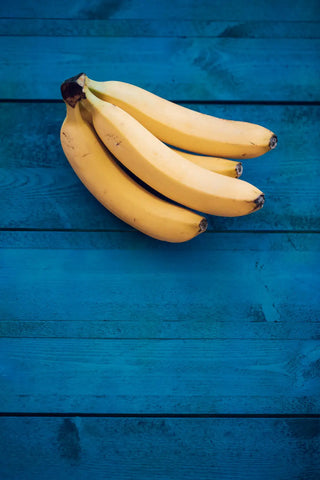
Unripe bananas contain one of the world’s richest sources of prebiotic-resistant starch. Prebiotic-resistant starch makes your cells more responsive to insulin, helping to prevent fat storage around your waistline. Additionally, the amount of fiber and potassium intake will give you a boost of energy. If combined with protein (in a smoothie with protein powder and/or nut butter), it can keep you full and satisfied for hours.
14. Low-Fat Milk
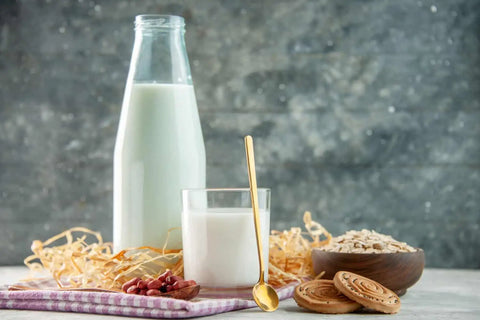
Milk is an essential part of your dietary needs. It is an excellent source of calcium and vitamin D. But, when you are trying to watch your weight, then it is better to consume low-fat milk daily to avoid unnecessary fat intake. Adding low-fat milk to your oatmeal can help you make a new addition to your list of healthy breakfast foods for weight loss!
15. Grapefruit
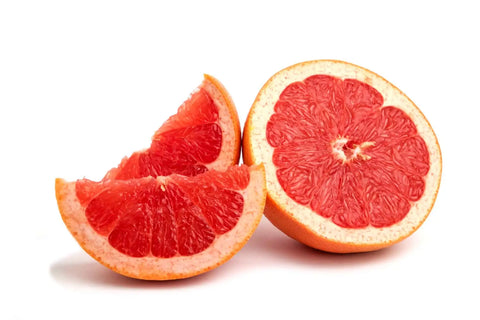
Grapefruit really can help you shed pounds, especially if you are at risk for diabetes. Researchers at Scripps Clinic in San Diego found that when obese people ate half a grapefruit before each meal, they dropped an average of 3 ½ pounds over 12 weeks. Drinking grapefruit juice had the same results. But this could just be because grapefruit made the people feel full. Still, there is no harm in including this high-fiber and high-vitamin fruit in your diet.
16. Nuts and Seeds
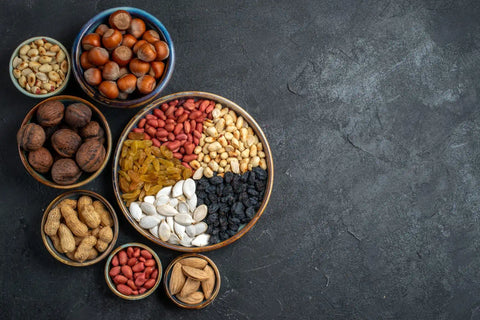
All nuts are a good source of fiber, protein, and healthy fat, and they help decrease hunger. Meanwhile, seeds are a great source of minerals and healthy fat. But watching your portions is very important here. One serving of nuts and seeds is equivalent to a quarter cup. And due to the high amount of good fat present, they should be eaten in moderation.
17. Broccoli

Broccoli is a member of the cruciferous vegetable family. It's known for its high water and fiber content. Cruciferous vegetables like broccoli, cauliflower, or cabbage are a better option to consume than other vegetables as they contain more protein and the high water content helps you feel full for longer.
18. Oatmeal
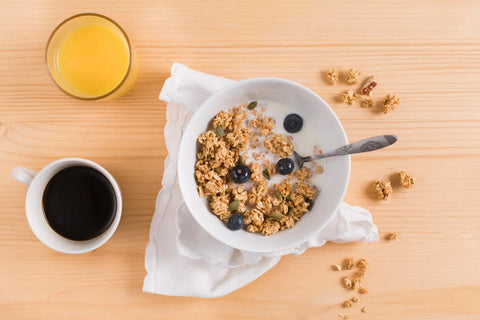
Oatmeal is full of fiber that will not only help you last through the morning without hunger but will slow down the release of sugar into your bloodstream. This makes oatmeal the ideal healthy breakfast food for weight loss. Just ½ cup of uncooked oats has at least 4 grams of fiber and only 150 calories — and it expands when cooked to yield 1 cup.Data from the National Health and Nutrition Examination Survey (NHANES) suggests that individuals who eat oatmeal tend to be healthier in general and have a lower body weight compared with those who don’t eat oatmeal. Not only does the soluble fiber in oats help to reduce LDL cholesterol, but the prebiotics in oats feed the good bacteria in your gut, helping it proliferate. Plus, oatmeal can be eaten in several ways by grinding oats into flour to use for baking or coating.
19. Yogurt

A Harvard study followed more than 120,000 people for a decade or longer. Yogurt, of all the foods that were tracked, was most closely linked to weight loss. Additionally, yogurt is your digestive system’s best friend. The proteins and good bacteria present in yogurt help you digest your food better and promote a healthy gut.
20. Berries
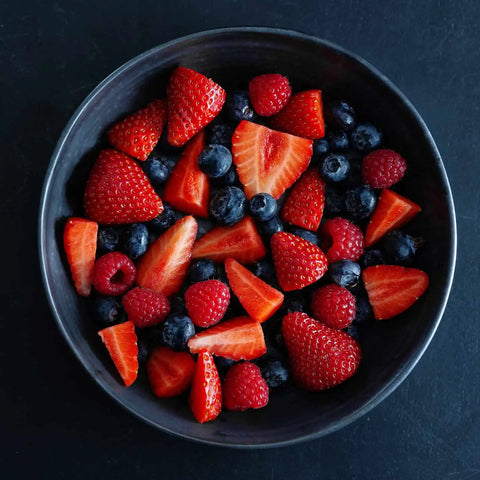
Berries, such as blueberries and strawberries, are low in calories, high in fiber, and in different essential nutrients like vitamins, which make them a great healthy snack food for weight loss.
21. Sauerkraut
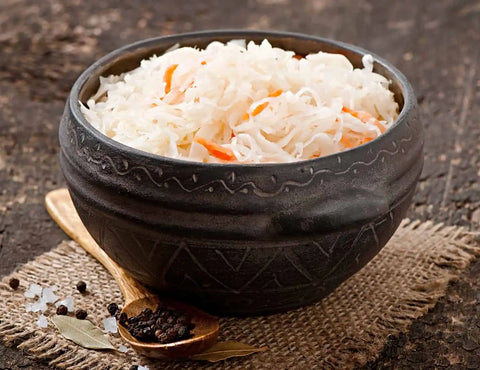
Sauerkraut, or fermented cabbage, is both a prebiotic and probiotic food. This means that sauerkraut adds beneficial bacteria to your gastrointestinal tract and feeds the good bacteria already there. Sauerkraut is also high in fiber, helping control appetite and regulate spikes in blood glucose levels.
22. Chili peppers
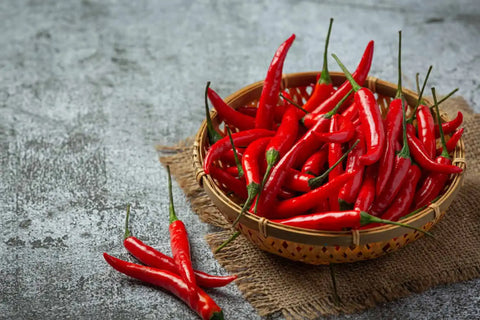
Hot peppers like chili peppers and jalapeños contain the chemical capsaicin, which gives these vegetables their heat. Capsaicin increases your body’s internal temperature which temporarily helps you burn more calories. Even though this might boost your metabolism, eating more of these won’t significantly help your weight loss. But these hot peppers certainly will help make your weight loss journey more flavourful, so go ahead and use them for seasoning your meals.
23. Low-Fat Cottage Cheese
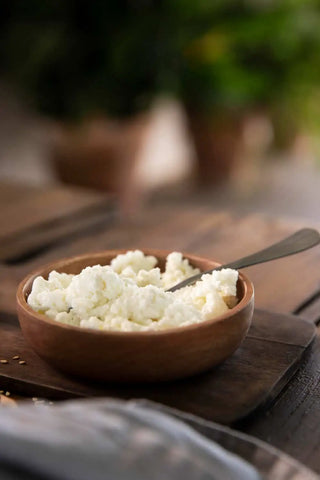
Cottage cheese is low in fat, low in carbs, and high in protein, making it ideal for healthy eaters. It is a great vegetarian equivalent for protein for non-meat eaters and can be cooked in several ways, like curries, steaks, salads, baked dishes, etc.
24. Water
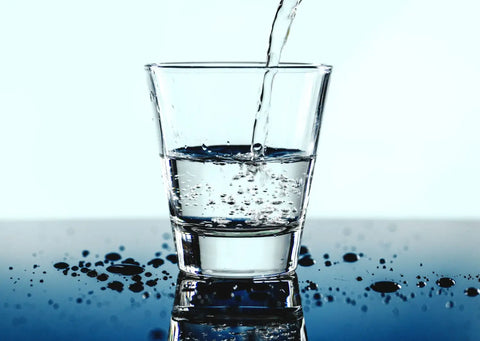
Water isn’t a food, but it’s just as important when it comes to healthy weight loss. Staying hydrated and fresh is essential for boosting your metabolic activity, which is the most important aspect of weight loss and weight management.
How To Lose Weight Safely and Sustainably
The most important part of weight loss is to keep it gradual and sustainable. The safest and most sustainable way to lose weight is to enjoy whole, unprocessed, high-quality foods. These foods naturally control your hunger, increase your metabolism, and promote fat burning, and hence are the foods that are healthy for weight loss. Try to omit as many processed foods, fried foods, and refined sugars as possible, while paying attention to portion size. Going on a crash diet or completely cutting out important carbohydrate or fat-rich food is also not correct, as these are essential for our bodily function. Try to eat clean, and understand that it is okay to eat healthy and naturally occurring good fats, as long as it is in moderation. You can try to use the plate method to judge the value your meal provides to your body, where your plate is composed of half fruits and vegetables, a quarter of lean protein, and a quarter of fiber-filled carbohydrates.
Eating clean will also help impact your gut health, which is crucial to boosting your metabolism and improving your bowel movements. Good gut health is just as important to weight loss as eating healthy is.
Weight management is a journey that many choose to undergo. Managing your weight wisely means eating right, resting well, exercising regularly, and being mindful of your body’s needs. Whether you choose to drink low-fat milk, eat lean meat, or switch to alternative gluten-free flour for your carbohydrate needs, everyone has a different method. With Rotimatic, we support your decision to switch to a healthier lifestyle. Rotimatic offers you options to adjust the level of oil used in the preparation, along with having the option to make various gluten-free rotis with a variety of healthy flours like rye flour, ragi flour, jowar flour, quinoa flour, etc. You can now seamlessly transition to eating healthy food for weight loss with Rotimatic’s patented automated technology.
Transform your food with Rotimatic - tailor your meal according to your needs & indulge in low-calorie, healthy rotis for a nourishing lifestyle!
FAQs:
1. What foods help burn belly fat?
Five foods that may help burn belly fat include:
- Foods with soluble fiber like fruits, vegetables, and legumes.
- Protein-rich foods like lean meat, fish, eggs, and dairy.
- Fatty fish like tuna and salmon.
- Probiotic food items like yogurt, kefir, sauerkraut, and kimchi.
- Green tea.